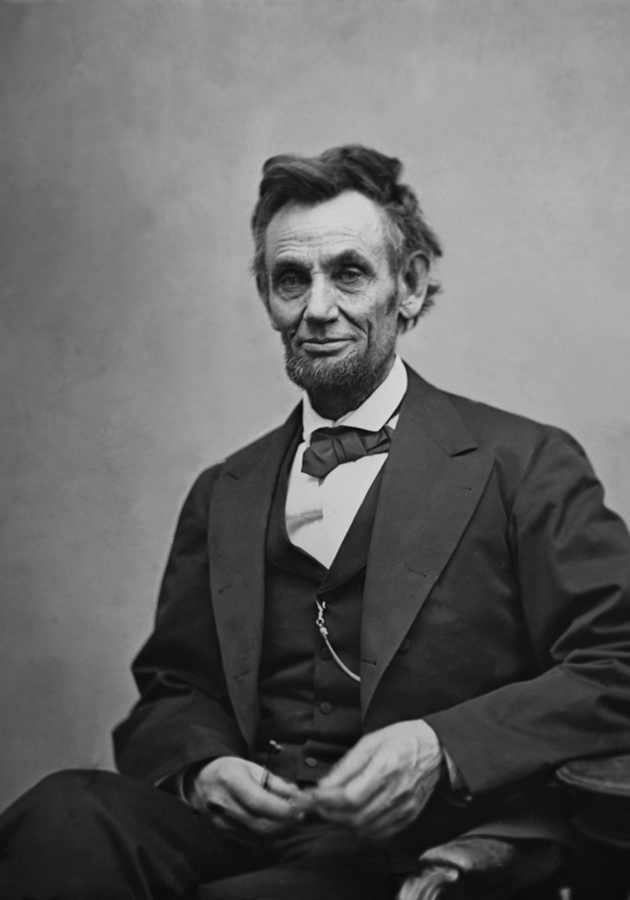This book stands out from other successful literature by its unorthodox approach. It does not provide a fairy-tale ending or a straightforward hero's journey but instead challenges readers to confront uncomfortable truths about themselves. This departure from traditional success literature makes the book both a powerful and polarizing read. While the book uses the Devil as a central figure, it also touches on broader philosophical and spiritual themes. It prompts readers to reflect on their own beliefs and values, and how these impact their success and well-being.
The title invites readers to consider their internal battles and the role of spirituality in overcoming personal challenges. It has been described as a seminal work on personal empowerment and success. Despite being written during the Great Depression, the book’s insights are deemed highly relevant to contemporary challenges. Hill's observations about human behavior, societal pressures, and the pursuit of success continue to resonate in modern times. He critiques societal norms and encourages readers to break free from limiting beliefs and behaviors.
Breaking free from fear
In his deep dive into fear and success, Napoleon Hill recounts a transformative experience involving his internal struggle and a powerful inner voice. Years after receiving a threatening death notice, which left him paralyzed by fear and hiding with relatives for over a year, Hill encountered a pivotal moment that reshaped his understanding of achievement and fear. This period of extreme vulnerability led him to discover a profound insight shared by Andrew Carnegie: the essence of success is not an external force but rather an internal one—a force Hill terms the "other self" or "Inner Intelligence."
Hill’s journey to this revelation was marked by intense self-doubt and paralysis. Despite his efforts to create a comprehensive philosophy of achievement through interviews and observations of successful individuals, his progress stalled as he struggled with fear and indecision. It was during a contemplative walk in nature that experienced a moment of clarity. He perceived a voice, which he interpreted as his "other self," guiding him to overcome his fears and complete his manuscript. This voice urged him to recognize that true success involves tapping into an innate reservoir of faith and positive energy.
Hill identified fear as the primary obstacle to achieving one's goals. He outlined six significant fears that hinder personal growth and fulfillment: fear of poverty, criticism, illness, loss of loved ones, aging, and death. These fears, according to Hill, are not merely natural instincts but also tools of resistance, perpetuated from a young age through societal institutions. For instance, religious teachings often instill a fear of the devil and promote a conservative lifestyle, while educational systems focus on memorization and conformity, discouraging exploration and individuality.
Hill's epiphany was that fear, if left unchecked, causes individuals to drift through life without pursuing their true aspirations. He realized that many people allow fear to dictate their actions, resulting in procrastination and stagnation. This fear-driven inertia prevents them from fully engaging with their potential and achieving their goals. Hill’s breakthrough was understanding that his fears were blocking his ability to access his Inner Intelligence—a source of self-belief and motivation that could propel him forward.
By confronting and overcoming his fears, Hill was able to finish his philosophy of achievement. His newfound perspective emphasized that individuals must recognize and harness their Inner Intelligence to succeed. This voice of clarity, which he describes as an infinite well of faith and positivity, can guide anyone in overcoming obstacles and reaching their full potential.
Hill's work, driven by this realization, laid the groundwork for the self-help genre. His insights into the power of overcoming fear and tapping into one's inner strength have inspired countless readers to confront their own fears, pursue their dreams, and transform their lives. His message remains relevant: to achieve true success, one must master the mind, overcome fear, and embrace the inner guidance that leads to personal fulfillment and achievement.
The power of purpose and persistence
Napoleon Hill's teachings focus on the critical role of having a clear and specific goal in achieving success and personal fulfillment. According to him, vague aspirations such as "be happy" are insufficient because they lack actionable steps. Instead, he advocates for identifying a precise purpose or life goal, which allows you to develop a concrete plan to achieve it. This clarity of purpose enables you to determine the necessary actions to reach your desired outcome.
Hill says that discovering one’s purpose is a deeply personal journey that cannot be dictated by external sources like schools, religious institutions, or family members. He points out that this process of self-discovery is crucial because it ensures that your goals are uniquely yours and not influenced by others' expectations or pressures.
One of his central ideas is the power of choice. He argues that every individual has the freedom to choose their thoughts, actions, and influences. This autonomy is one of humanity's greatest gifts, and Hill believes it should not be wasted on negative or toxic decisions. He uses the example of Henry Ford, who, despite the challenging economic conditions of the Great Depression, maintained a positive outlook and achieved significant success. Ford’s perseverance and optimistic mindset led to groundbreaking innovations, such as the assembly-line manufacturing system.
In contrast, Hill describes "drifting" as a major cause of failure. Drifting refers to living without a clear sense of purpose or direction, which often leads to a lack of motivation and agency. Hill asserts that drifters are easily influenced by external forces and lack the ability to make independent decisions or take risks. This state of passivity and aimlessness is likened to living on autopilot, resulting in missed opportunities and unfulfilled potential.
Hill criticizes traditional educational and religious systems for promoting conformity and discouraging independent thinking. He argues that these institutions often foster a "drifting" mentality by encouraging rote learning and standardized behavior. Instead, Hill advocates for nurturing creativity, critical thinking, and individuality. He suggests that parents and educators should focus on developing students' unique talents and abilities rather than adhering to a one-size-fits-all approach.
Hill also discusses the concept of persistence and its role in achieving success. He highlights the example of Thomas Edison, who faced thousands of failures before successfully inventing the light bulb. Hill believes that persistence, combined with a positive attitude, is crucial for overcoming obstacles and achieving one's goals.
Additionally, Hill addresses the six "deadly fears"—fear of poverty, criticism, ill health, loss of love, old age, and death—that can undermine personal growth and success. These fears, often instilled early in life, can lead to issues such as low self-esteem, anxiety, and a reluctance to take risks. He encourages overcoming these fears through self-belief, skill development, and a relentless pursuit of one's true calling.
How subconscious patterns shape our success
In his exploration of habit formation and mindset, Napoleon Hill introduces the concept of "hypnotic rhythm," which refers to the automatic, repetitive patterns of behavior that dictate our actions and shape our lives. According to Hill, these habits can be either beneficial or detrimental, and they often operate without our conscious awareness, making it crucial to understand and manage them effectively.
Hill describes hypnotic rhythm as the tendency for repetitive behaviors to become ingrained in our daily lives, creating a state where we act on autopilot. This automatic nature can be positive or negative, depending on the habits. To overcome the hypnotic rhythm of negative habits, we must become more mindful of our actions. This involves self-reflection and questioning why we engage in certain behaviors. By increasing our awareness and actively working to replace detrimental habits with positive ones, we can break free from harmful patterns.
Hill argues that every decision we make influences our future. Our choices, whether they pertain to our diet, social circle, or daily routines, collectively shape our identity and success. For example, the people we surround ourselves with play a significant role in shaping our habits and attitudes. Positive influences can encourage healthier behaviors and foster personal growth, while negative influences can drag us down and perpetuate bad habits. Evaluating and possibly changing our social circle can be crucial for breaking free from toxic patterns.
Hill highlights that fear can be a significant obstacle to success, often leading to doubt and indecision. These feelings can make us feel stuck and prevent us from reaching our full potential. To counteract this, Hill advises confronting our fears directly and focusing on positive thoughts and influences.
By addressing and understanding our fears, we can reduce their power and move beyond them. This involves a mental shift from focusing on what could go wrong to envisioning and working towards positive outcomes. Hill critiques the conventional educational system for prioritizing rote learning and factual memorization over practical life skills and personal development. He argues that while formal education provides foundational knowledge, it often falls short in preparing individuals for real-world challenges.
True mastery and success come from continuous self-education and personal growth beyond the classroom. Engaging in activities such as reading, attending seminars, and interacting with mentors can provide valuable insights and skills that formal education may not offer. Hill asserts that our subconscious mind plays a crucial role in shaping our life experiences. Persistent thoughts and emotions, whether positive or negative, become deeply embedded in the subconscious, influencing our behaviors and perceptions.
The concept of hypnotic rhythm underscores how recurring thoughts and actions solidify into entrenched habits. By repeatedly practicing positive behaviors and nurturing constructive thoughts, we can reinforce beneficial habits and reshape our mental landscape. Hill emphasizes the importance of protecting our mental space from negative influences. Without addressing and confronting pessimistic thoughts, they can become deeply ingrained, perpetuating cycles of fear and limitation. Conversely, cultivating a positive mindset can lead to more favorable outcomes and personal growth.
Transforming obstacles into opportunities
The concept of the "intuitive self" represents an inner voice that guides us during times of stagnation or uncertainty. This intuitive voice becomes prominent when we are stuck or in a slump, offering direction and insights that differ from the usual noise and chatter in our minds. It's a distinct, clear signal that prompts us to make necessary changes or take decisive actions. Recognizing and responding to this voice can help us navigate our path more effectively, leading us toward personal growth and success.
For instance, the story of Hill illustrates the power of listening to one's intuitive self. His intuition nudged him to complete his manuscript for his first self-help book, which was a critical step in breaking out of his stagnation. By following this inner guidance, he was able to move forward, secure a meeting with a publisher, and ultimately obtain a publishing deal, demonstrating how aligning with our intuitive self can lead to tangible achievements.
The author also wants to teach the readers about the importance of learning from failure as a pathway to success. It suggests that while failure is unpleasant, it is an integral part of the journey toward success. Hill also emphasizes the significance of critical thinking and self-reliance. He cautions against 'drifting,' which refers to passively going along with whatever comes your way without questioning or critically evaluating. Instead, Hill advocates for independent thought and action.
He encourages individuals to take ownership of their decisions and rely on their own insights rather than deferring to others' opinions. A key aspect of Hill’s philosophy is the importance of setting clear and well-defined goals. Goals act as a blueprint for success, much like a recipe guides the preparation of a dish. Having a clear vision of what you want to achieve provides direction and helps in planning the necessary steps to reach your objective.
Hill asserts that goals empower individuals by offering a sense of purpose and control, diminishing the influence of negative forces or obstacles that might otherwise deter progress. In essence, setting and pursuing goals helps individuals stay focused and motivated, counteracting the negative impact of failure and challenges.
Final notes
This title presents a profound exploration of the obstacles that impede personal success and fulfillment, encapsulated in a fictional dialogue between Hill and the devil. Although the book was written in 1938, it was not published until 2011 due to its controversial content. The core of Hill's argument is that fear and drifting are the primary tools the devil uses to control individuals. According to the author, drifting—living without a clear purpose or direction—is a major reason why people fail to achieve their potential.
The book addresses various life traps such as procrastination, comfort, addiction, and overindulgence. Hill offers guidance for avoiding these pitfalls, bringing out the need for patience and intent. While some readers may find the book's dialogue with the devil symbolic rather than literal, its insights into overcoming personal barriers and achieving success remain impactful.
12min tip
If you're feeling overwhelmed by negative news, we highly recommend Steven Pinker's “Enlightenment Now: The Case for Reason, Science, Humanism, and Progress.” This book presents a refreshing perspective on human progress, challenging the doom-and-gloom narratives with a compelling array of data and analysis.





























